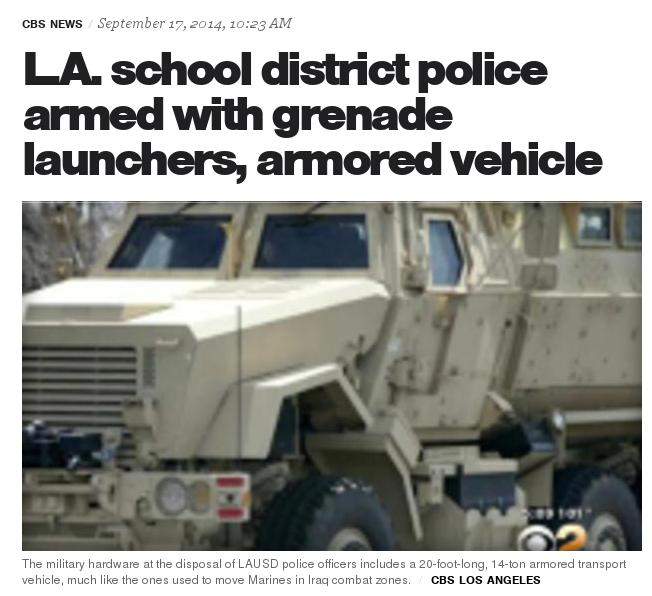
| The USA has now crossed the line separating a constitutional democracy from a fascist state. |

|
"Some have argued that the President is required to get permission
from a federal court before taking action against a United States
citizen ...
This is simply not accurate. "Due process" and "judicial process"
are not one and the same, particularly when it comes to national security.
The Constitution guarantees due process, not judicial process."
Simply put, what the administration is now claiming as standard
operating policy is that it can formulate certain procedures on an
ad-hoc basis and call it "due process."
Note also that Holder doesn't make a distinction between targeting US
citizens here versus abroad. This is a blanket statement.
 |
 |
Every year, the State Department issues reports on individual rights in other countries, monitoring the passage of restrictive laws and regulations around the world. Iran, for example, has been criticized for denying fair public trials and limiting privacy, while Russia has been taken to task for undermining due process. Other countries have been condemned for the use of secret evidence and torture.
Even as we pass judgment on countries we consider unfree, Americans remain confident that any definition of a free nation must include their own - the land of free. Yet, the laws and practices of the land should shake that confidence. In the decade since Sept. 11, 2001, this country has comprehensively reduced civil liberties in the name of an expanded security state. The most recent example of this was the National Defense Authorization Act, signed Dec. 31, which allows for the indefinite detention of citizens. At what point does the reduction of individual rights in our country change how we define ourselves?
The list of powers acquired by the US government since 9/11 puts us in rather troubling company.
President Obama has claimed, as President George W. Bush did before him, the right to order the killing of any citizen considered a terrorist or an abettor of terrorism. Last year, he approved the killing of US citizen Anwar al-Awlaqi and another citizen under this claimed inherent authority. Last month, administration officials affirmed that power, stating that the president can order the assassination of any citizen whom he considers allied with terrorists. (Nations such as Nigeria, Iran and Syria have been routinely criticized for extrajudicial killings of enemies of the state.)
Under the law signed last month, terrorism suspects are to be held by the military; the president also has the authority to indefinitely detain citizens accused of terrorism. While the administration claims that this provision only codified existing law, experts widely contest this view, and the administration has opposed efforts to challenge such authority in federal courts. The government continues to claim the right to strip citizens of legal protections based on its sole discretion. (China recently codified a more limited detention law for its citizens, while countries such as Cambodia have been singled out by the United States for "prolonged detention.")
The president now decides whether a person will receive a trial in the federal courts or in a military tribunal, a system that has been ridiculed around the world for lacking basic due process protections. Bush claimed this authority in 2001, and Obama has continued the practice. (Egypt and China have been denounced for maintaining separate military justice systems for selected defendants, including civilians.)
The president may now order warrantless surveillance, including a new capability to force companies and organizations to turn over information on citizens' finances, communications and associations. Bush acquired this sweeping power under the Patriot Act in 2001, and in 2011, Obama extended the power, including searches of everything from business documents to library records. The government can use "national security letters" to demand, without probable cause, that organizations turn over information on citizens - and order them not to reveal the disclosure to the affected party. (Saudi Arabia and Pakistan operate under laws that allow the government to engage in widespread discretionary surveillance.
The government now routinely uses secret evidence to detain individuals and employs secret evidence in federal and military courts. It also forces the dismissal of cases against the United States by simply filing declarations that the cases would make the government reveal classified information that would harm national security - a claim made in a variety of privacy lawsuits and largely accepted by federal judges without question. Even legal opinions, cited as the basis for the government's actions under the Bush and Obama administrations, have been classified. This allows the government to claim secret legal arguments to support secret proceedings using secret evidence. In addition, some cases never make it to court at all. The federal courts routinely deny constitutional challenges to policies and programs under a narrow definition of standing to bring a case.
The world clamoured for prosecutions of those responsible for waterboarding terrorism suspects during the Bush administration, but the Obama administration said in 2009 that it would not allow CIA employees to be investigated or prosecuted for such actions. This gutted not just treaty obligations but the Nuremberg principles of international law. When courts in countries such as Spain moved to investigate Bush officials for war crimes, the Obama administration reportedly urged foreign officials not to allow such cases to proceed, despite the fact that the United States has long claimed the same authority with regard to alleged war criminals in other countries. (Various nations have resisted investigations of officials accused of war crimes and torture. Some, such as Serbia and Chile, eventually relented to comply with international law; countries that have denied independent investigations include Iran, Syria and China.)
The government has increased its use of the secret Foreign Intelligence Surveillance Court, which has expanded its secret warrants to include individuals deemed to be aiding or abetting hostile foreign governments or organizations. In 2011, Obama renewed these powers, including allowing secret searches of individuals who are not part of an identifiable terrorist group. The administration has asserted the right to ignore congressional limits on such surveillance. (Pakistan places national security surveillance under the unchecked powers of the military or intelligence services.)
Like the Bush administration, the Obama administration has successfully pushed for immunity for companies that assist in warrantless surveillance of citizens, blocking the ability of citizens to challenge the violation of privacy. (Similarly, China has maintained sweeping immunity claims both inside and outside the country and routinely blocks lawsuits against private companies.)
The Obama administration has successfully defended its claim that it can use GPS devices to monitor every move of targeted citizens without securing any court order or review. (Saudi Arabia has installed massive public surveillance systems, while Cuba is notorious for active monitoring of selected citizens.)
The government now has the ability to transfer both citizens and noncitizens to another country under a system known as extraordinary rendition, which has been denounced as using other countries, such as Syria, Saudi Arabia, Egypt and Pakistan, to torture suspects. The Obama administration says it is not continuing the abuses of this practice under Bush, but it insists on the unfettered right to order such transfers - including the possible transfer of US citizens.
These new laws have come with an infusion of money into an expanded security system on the state and federal levels, including more public surveillance cameras, tens of thousands of security personnel and a massive expansion of a terrorist-chasing bureaucracy.
The framers of the US Constitution lived under autocratic rule
and understood this danger
better than we do. James Madison famously warned that we needed a
system that did not depend on the good intentions or motivations of
our rulers: "If men were angels, no government would be necessary."
--------
The Washington Post, Jonathan Turley
The Daily Reckoning Australia, Bill Bonner